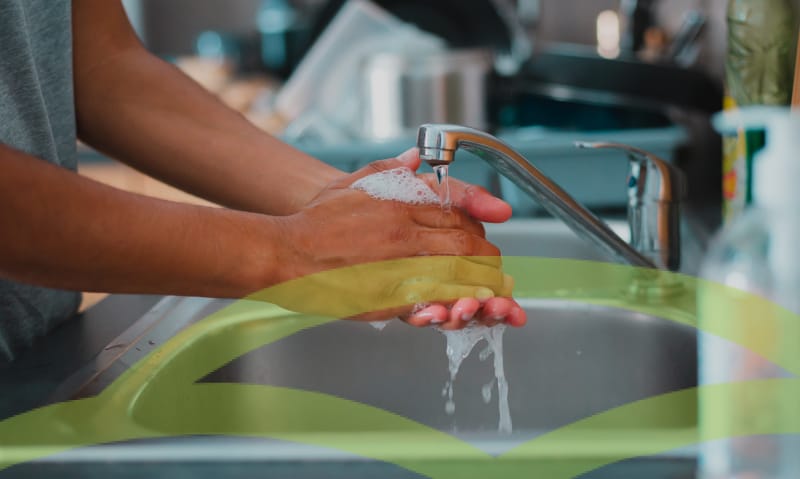Make Sure You Wash Your Hands After These Activities

Handwashing is the key to a healthier life.
When you think of ways to stay healthier and get sick less frequently, what comes to mind? You might be thinking about eating a healthier diet, taking daily vitamins, and getting more exercise. While these are effective ways to boost your health, there is one other habit that has a profound impact — taking the time to wash your hands!
We come into contact with hundreds of thousands of different types of germs on a daily basis, mostly through physical contact from surfaces we touch with our hands. Germs on our hands are then quickly transferred to other surfaces around us and to other areas on our own bodies.
For example, a virus we pick up on our hands can enter our respiratory system by rubbing our nose or touching our face. In fact, as much as 20% of respiratory diseases can be prevented through frequent handwashing, while 50% of other illnesses — like the common cold — can also be prevented.
Handwashing is one of the most important things we can do to not only stay physically healthy and free from illness but to also help care for others around us.
 When You Should Wash Your Hands
When You Should Wash Your Hands
Keeping germs away with handwashing isn’t so much a task of washing constantly, but rather washing before or after certain activities.
The most important times to wash your hands are when they’ve become contaminated and before placing your hands — or something you touch with your hands — near your face. The most common situations include:
-
- Cooking and mealtimes. Always wash before and after eating and cooking. While cooking, it’s also a good idea to wash periodically during the process (i.e., after touching meat).
- Caring for someone. Wash before and after caring for someone, such as providing water, checking on an ill individual, or giving first aid.
- Bathroom activities. Always wash after using the restroom, helping a child use the restroom, changing diapers, closing a toilet seat lid, etc. Bacteria on the hands can double after a trip to a bathroom.
- Caring for pets. Wash after cuddling pets, giving food or treats, and especially when picking up waste outside or in the litterbox.
- Handling garbage. Wash up after taking out the trash and recycling or touching a garbage or recycling bin.
- Sneezing or coughing. Wash your hands as soon as you can after sneezing, coughing, rubbing your nose, etc.
You can wash your hands too often, to the point your skin becomes irritated, dry, and even cracks. This overwashing can have the opposite effect and encourage bacteria. If your hands seem dry or sensitive, consider irritating soap you might be using, the too-hot temperature of the water, and whether you might be washing a bit too often.
The Best Method of Washing Your Hands
Only a very small percentage of adults (about 5%) wash their hands the right way. Here’s a reminder of the five steps of proper handwashing:
- Wet your hands with cold or warm water.
- Get your hands lathered with soap.
- Scrub your hands together for 20 seconds.
- Make sure you’ve washed all areas before rinsing.
- Dry with a clean hand towel, paper towel, or drier.
That’s all there is to effective handwashing!
The Berrien Dental family takes care of yours in more ways than one.
In addition to caring for you and your family’s oral health, the Berrien Dental team also looks out for your overall health. We maintain a high standard of hygiene and sanitation in our office to ensure a safe, healthy environment for everyone who visits us.
To learn more about our protocols or to book a visit, give our office a call or use this online form.